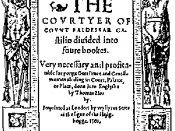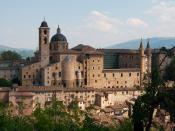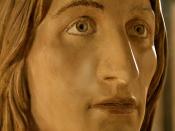Humanism was an intellectual movement that developed during the renaissance period, which aimed a new evaluation of man, of his place in nature and in history of creative learning. The humanists believed that the Greek and Latin classics contained all the lessons one needed to lead a moral and effective life and the best models for a powerful Latin not only were the best but also consumed. Humanism emphasized the dignity of the individual. In fact humanism originated in the study of classical culture with the promotion of a new curriculum that emphasized a group of subjects known collectively as humanities. The humanists also stressed the responsibilities of citizenship and social leadership, and they felt they were obligated to participate in the political life of the community. Humanists believed that wealth enabled them to do noble deeds, and all citizens needed a good, well-rounded education. To humanists moral and ethical issues were related more to secular society than to spiritual concerns, and it was a shift in the focus of values to man and his affairs.
Finally, the humanistic period set values on behaviors, creative thinking and helped develop the morals that were necessary for society in the Renaissance times.
The humanists believed in Pico Della "Oration on the Dignity of Man", and of his dignity of boundless freedom man celebrated. Revival of learning was more than an achievement in scholarship. Pico Della believes that our own destiny takes shape by the way we shape ourselves; we are free to acquire any destiny we wish. This ability to create one's self in mans highest honor creations. Man is close to the gods, he is master over the lower creature, and he is the nodal point between eternity and time are a few reasons given for the magnificence of...


